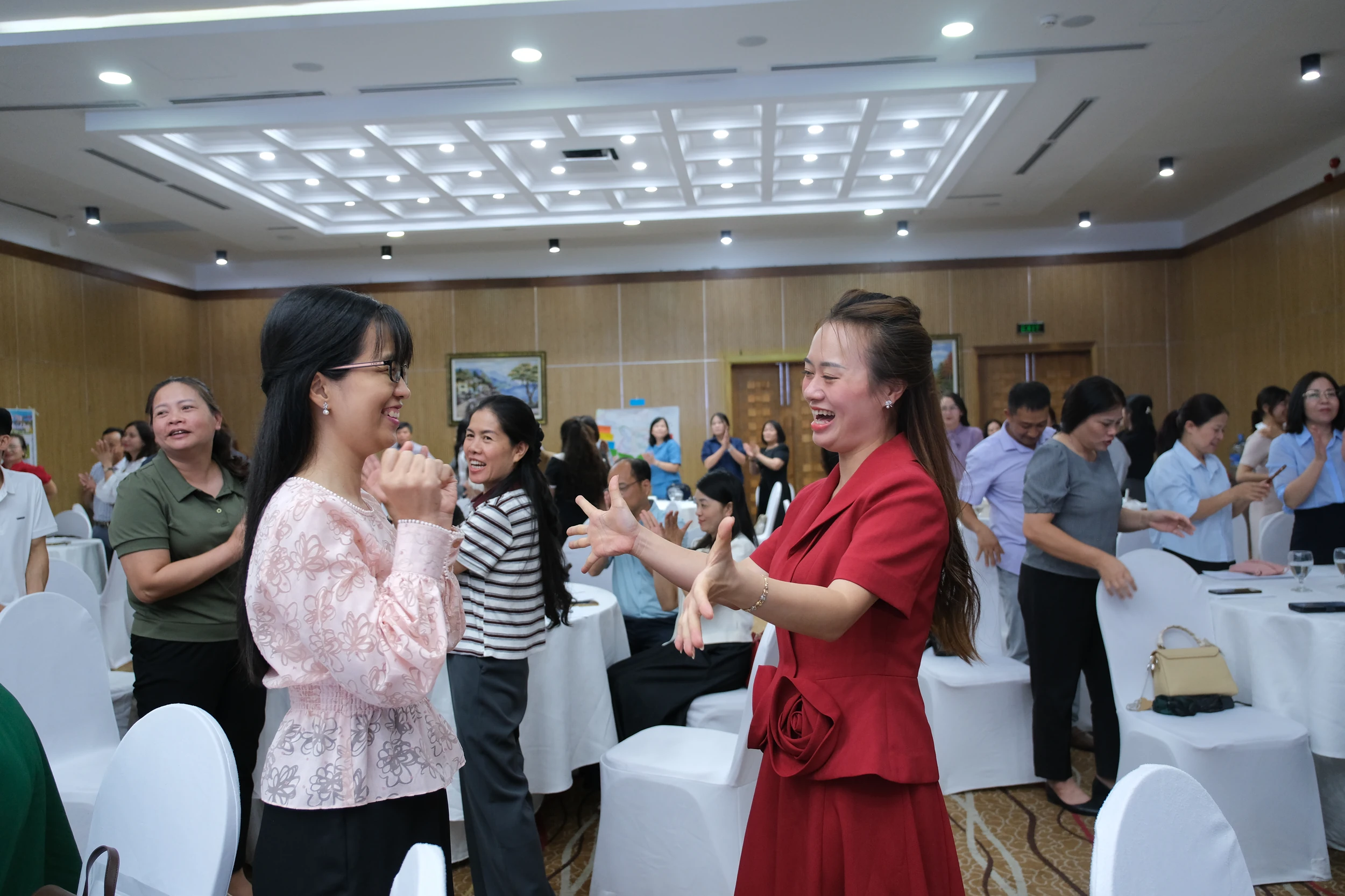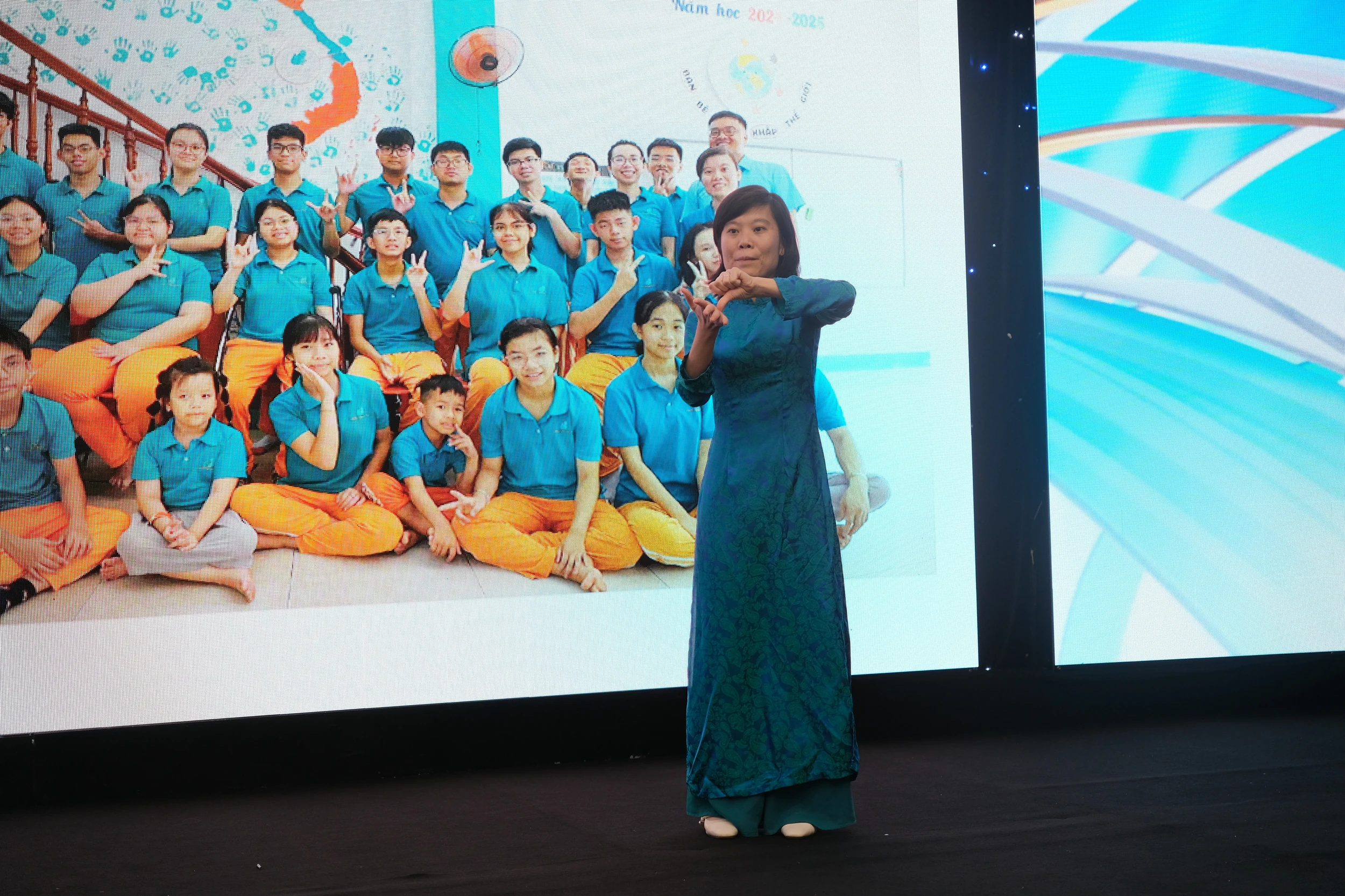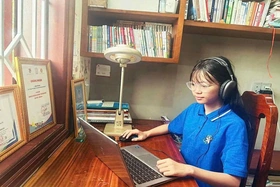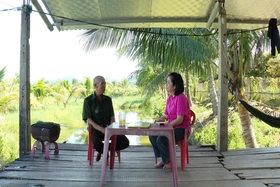{title}
{publish}
{head}
The Flemish Association for Development Cooperation and Technical Assistance of the Kingdom of Belgium (VVOB) on July 10 organized a national workshop on student autonomy in Danang. The event was attended by representatives from the Ministry of Education and Training, as well as Departments of Education and Training from eight provinces and cities: Thai Nguyen, Lai Chau, Ha Giang, Nghe An, Quang Tri, Da Nang, Quang Ngai, and Ho Chi Minh City, all of which are participating in the project “Integrating Learning through Play in Primary Education in Vietnam.” Representatives from non-governmental organizations and teacher training universities across the country also took part in the workshop.
This forum served as a platform to present the technical paper on promoting student autonomy, with the aim of offering essential recommendations and practices to support learners in developing and strengthening this competency in a rapidly changing world. Student autonomy is no longer a distant concept but has become an urgent necessity, equipping learners with essential skills such as critical thinking, problem-solving, and lifelong learning. In Vietnam, the 2018 General Education Curriculum clearly emphasizes autonomy as one of the core competencies that contribute to the comprehensive development of children and the realization of the program’s goals.

Delegates take part in play-based learning activities to promote student autonomy. Photo: Project
However, in practice, autonomy is often narrowly interpreted as self-study or independent learning, which results in broader aspects such as collaboration, creative thinking, and adaptability being overlooked or insufficiently reflected in teaching and learning practices.
Recognizing this gap, VVOB in Vietnam, together with members of the technical group, developed the technical paper “Promoting Student Autonomy: Pedagogical Practices to Develop Autonomy under the 2018 General Education Curriculum.” This document not only analyzes different interpretations of autonomy but also provides practical recommendations for integrating this competency into teaching and learning activities both in the classroom and throughout the school. It also outlines specific practices to foster student autonomy.
Nguyen Bao Chau, VVOB Project Coordinator in Vietnam, shared: “We need to shift from viewing self-study as reading materials alone to recognizing autonomy as an integrated competency. Students must know how to set goals, assess progress, collaborate with peers, and adjust their learning methods to suit their individual needs. This technical paper is not merely theoretical guidance but a practical tool that teachers, school leaders, and pedagogical university lecturers can directly apply to their teaching. This is a necessary step to bring autonomy into real classroom settings.”
At the workshop, experts presented specific groups of recommendations aimed at creating a better learning environment that promotes and nurtures student autonomy as a core competency. These include strengthening the role of school leadership in fostering autonomy. School leaders play a pioneering role in shaping strategic visions, formulating policies, and creating favorable conditions for teachers and students to cultivate autonomy.
It is also crucial to enhance the capacity of teachers in promoting student autonomy. Teachers directly interact with students, and therefore, equipping them with appropriate knowledge, skills, and pedagogical methods is essential. Encouraging the participation of families and communities in supporting the development of student autonomy is another important area. For autonomy to truly flourish, students must be empowered and given opportunities to actively engage in their learning process.
The role of teacher training institutions should also be reinforced in terms of training, capacity building, and research on autonomy. The technical paper is the result of extensive professional collaboration between VVOB and representatives from pedagogical universities, international organizations, and non-governmental organizations working in education. Its content was developed based on a thorough review of policy documents, professional materials, domestic and international research, as well as good practices from education projects in Vietnam.
Through this workshop, VVOB hopes to spread an accurate understanding of student autonomy while promoting innovative pedagogical practices—from the classroom to management levels—to create a learning environment where students can be proactive, creative, and holistically developed. This not only helps them succeed in their studies but also equips them with a strong foundation to confidently navigate a constantly changing world.
In recent times, under the implementation of the education sector’s foreign affairs plan and the coordination regulation between the Department of Education and Training and the Department of Foreign Affairs on strengthening international cooperation in education and training for the 2022–2026 period, the Department of Education and Training has intensified its international collaboration with universities and educational institutions in developed countries. The goal is to support local administrators, teachers, and students in pursuing study and research at renowned international universities.
Among the initiatives, the Department of Education and Training of Quang Tri and the National Institute of Education Management in Singapore signed a memorandum of understanding on education and training cooperation for the 2023–2027 period. Based on the contents of the memorandum, the Department of Education and Training coordinated with the National Institute of Education Management Singapore to organize a workshop to assess students’ foreign language proficiency and apply information technology to innovate teaching methods. The workshop was held for more than 120 English teachers from two provinces, Quang Binh and Quang Tri, and two cities, Hue and Da Nang.
Leaders from the Department of Education and Training also visited, worked with, and attended a seminar at the National Institute of Education Management in Singapore. During the visit, both sides exchanged and shared experiences in school governance and administration, training and professional development for administrators and teachers, organization of teaching and STEM education, teacher evaluation criteria and methods, strategies and tools for assessing students’ learning outcomes, and the application of information technology and artificial intelligence in management and teaching.

A representative from the Central Vietnam Education and Support Center for the Deaf shares experiences using sign language. Photo: Project
The Department of Education and Training also partnered with VVOB Belgium to organize a workshop titled “Sharing Practices of Administrators and Teachers in Belgium and Vietnam on Applying Language-Rich Learning Environments in Multilingual Early Childhood Education, Management, and Professional Development for Preschool Teachers.” The workshop was held within the framework of the project “Preschool Teachers Apply Knowledge and Skills to Create Language-Rich Learning Environments for Children” in Quang Tri Province, covering the 2022–2026 period.
The Department of Education and Training worked with the Dariu Foundation from Switzerland to implement a project on digital skills education for students across the province. It also partnered with the Golden West Humanitarian Foundation from the United States to carry out the “Child Drowning Prevention in Quang Tri Province” project during the 2023–2024 period. Quang Tri Pedagogical College provided training in applied informatics and granted full scholarships to many students selected from Savannakhet and Salavan provinces in Laos.
In addition, the Department of Education and Training has effectively managed state oversight of study abroad consulting organizations operating across the province. It has directed schools and units to continue cooperating with international organizations in receiving and implementing humanitarian aid projects and support activities such as school and classroom construction, climate change education, disaster risk reduction, and landmine prevention. The department has also coordinated with relevant agencies to effectively manage foreign teachers coming to teach and organize educational activities in the locality.
Thanh Truc - Ngoc Mai

QTO - Not letting summer slip by in vain, many students in Quang Tri have taken the initiative to teach English to younger children. Through each lesson,...

QTO - Returning from the northern border front with a 2/4 disability, it seemed his journey of service had come to an end. Yet, this wounded soldier began...